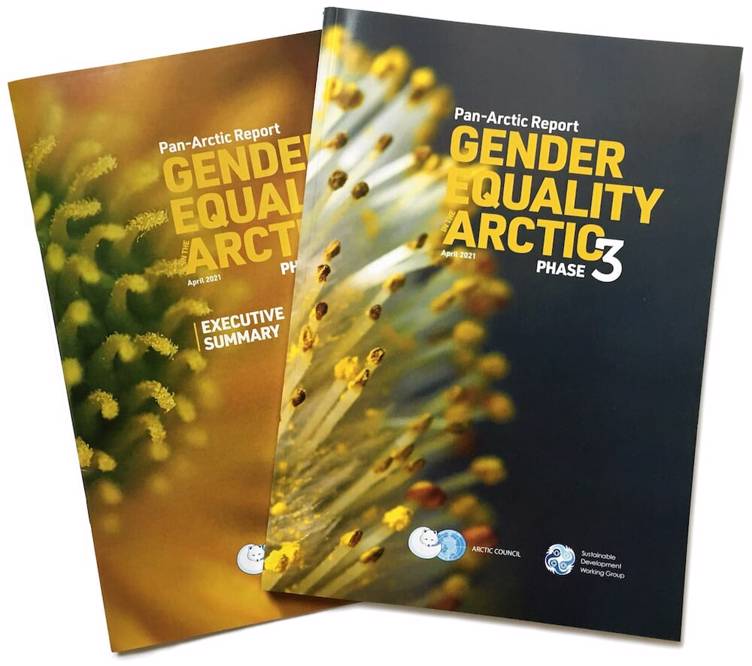
A milestone Pan-Arctic Report: Gender Equality in the Arctic has just been published and is available online at arcticgenderequality.network. The report was published in tandem with the Arctic Council Ministerial Meeting held in Reykjavík 19. – 20. May. The report is a part of an international project under the Arctic Council Sustainable Development Group on Gender Equality in the Arctic (GEA).
The report provides an overview of gender-related issues in the Arctic, including Law & Governance; Security; Gender and Environment; Migration and Mobility; Indigeneity, Gender, Violence, and Reconciliation; and Empowerment and Fate Control. It contributes to identifying gaps in knowledge when it comes to gender in the region and provides three recommendations specifically for the Arctic Council in addition to almost 70 policy relevant highlights.
Gunhild Hoogensen Gjørv, professor at the Centre for Peace Studies at the Arctic University of Norway and Research Professor at PRIO, is the co-author of the Security chapter in the report. Torunn L. Tryggestad, Deputy Director Peace Research Institute of Oslo (PRIO) and Director of the PRIO Centre on Gender, Peace and Security, is one of the external reviewers of the same chapter. The Gender and Security in the Arctic (GSA) project is an MFA funded project and based at the PRIO GPS Centre and work in combination with the Security Group at PRIO.
The report was developed by 10 lead authors and approximately 80 contributing authors, from over 15 states, including all Arctic States. The GEA project is an international collaborative project dating back to 2013. Lead and co-leads include Iceland, Sweden, Finland, Canada, the United States, the Saami Council and the Aleut International Association but as it is a highly collaborative project it includes many other additional partners.
Key findings include the need for mainstreaming and gender-based analysis as necessary strategies for promoting and ensuring gender equality, including in social and economic development, and the need for better gender, sex and ethnically disaggregated data. Consistent and comparable data is the very foundation for understanding realities and inequalities across regions, countries, sectors, genders, and peoples. It is crucial for meaningful research and providing policymakers and decisionmakers with the knowledge and capacity to develop well-informed policies. The highlights are relevant for multiple audiences, including Arctic states, the Arctic Council and its working groups, policy makers, private industry, the research community, and the public.





